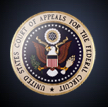Washington, D.C. – The Court of Appeals for the Federal Circuit has affirmed the dismissal of a patent infringement case. Patent attorneys for Abbott Point of Care of Princeton, New Jersey had filed a patent infringement lawsuit in the Northern District of Alabama alleging that Abbott should have legal title to patent no. 6,845,327, Point-of-care in-vitro blood analysis system, and 6,896,778, Electrode module which has been issued by the US Patent Office. The patents are owned by Epocal, Inc. of Ottawa, Ontario, Canada, who was named as defendant in this suit.  The Northern District of Alabama had granted Epocal’s motion to dismiss and dismissed Abbott’s complaint. Abbott appealed, and the Court of Appeals for the Federal Circuit affirmed.
The Northern District of Alabama had granted Epocal’s motion to dismiss and dismissed Abbott’s complaint. Abbott appealed, and the Court of Appeals for the Federal Circuit affirmed.
According to the opinion, Dr. Imants Lauks was once an employee of Abbott’s predessor company, but went on to start Epocal after he left that employment. Dr. Lauks has assigned all his patent rights to Epocal. Pursuant a series of employment and consulting contracts with Abbott, Dr. Lauks agreed to assign to Abbott all patent rights to any inventions he conceived while employed with Abbott. Abbott claims that the patents in questions cover inventions that were conceived while Dr. Lauks was employed with Abbott and therefore Abbott should have the patent rights. Epocal filed a motion to dismiss for lack of subject matter jurisdiction and failure to state a claim. Epocal claimed the patents in question were conceived after Dr. Lauks’s employment terminated, therefore Abbott has no ownership.
Chief Judge Rader, writing the opinion of the court, agreed with the district court that Abbott did not have any rights to the patents and therefore, lacked standing to bring a patent infringement lawsuit. The opinion noted that the district court had concluded the terms of the most recent agreement did not cover the invention in question. Justice Bryson wrote a dissenting opinion, noting he found that contracts to be ambiguous and would have remanded for further discovery of extrinsic evidence of the intention of the parties in entering the employment contract.
Practice Tip: Employment and consultancy contracts routinely require assignment of intellectual property rights. In this case, the language of the clause in the employment/consultancy agreement changed over time. The court discussed that if the language in the first contract would have been identical to the language in the latest contract, Abbott would have had rights to the patents in question. This illustrates the importance of having an intellectual property attorney draft these clauses carefully.
Continue reading
 Indiana Intellectual Property Law News
Indiana Intellectual Property Law News


